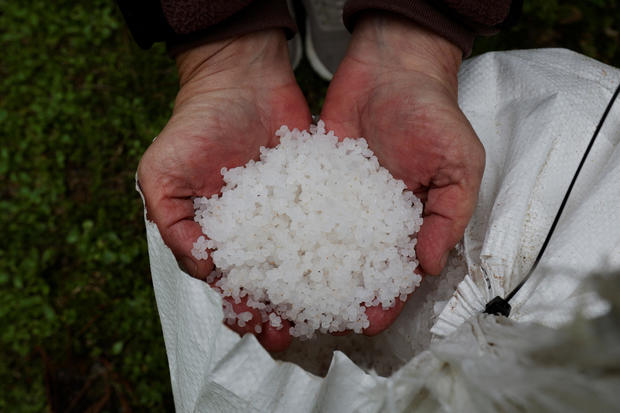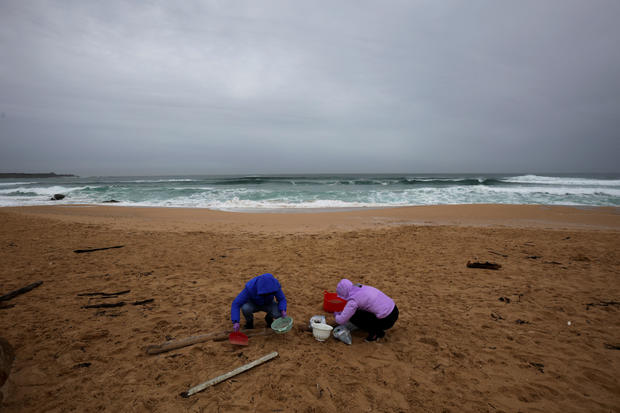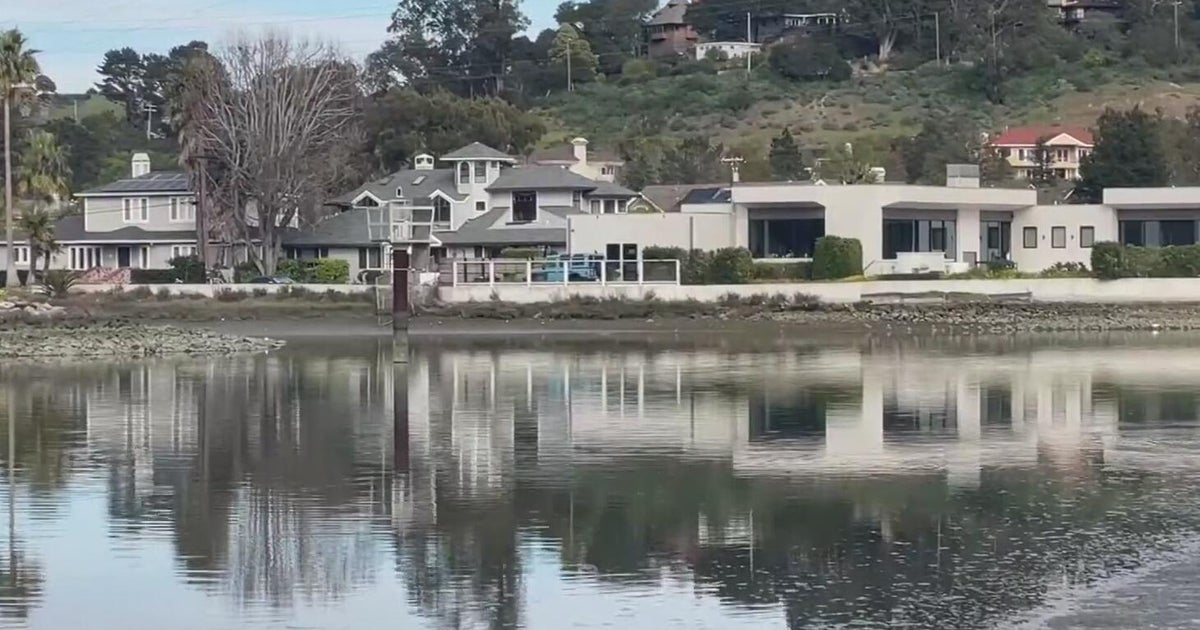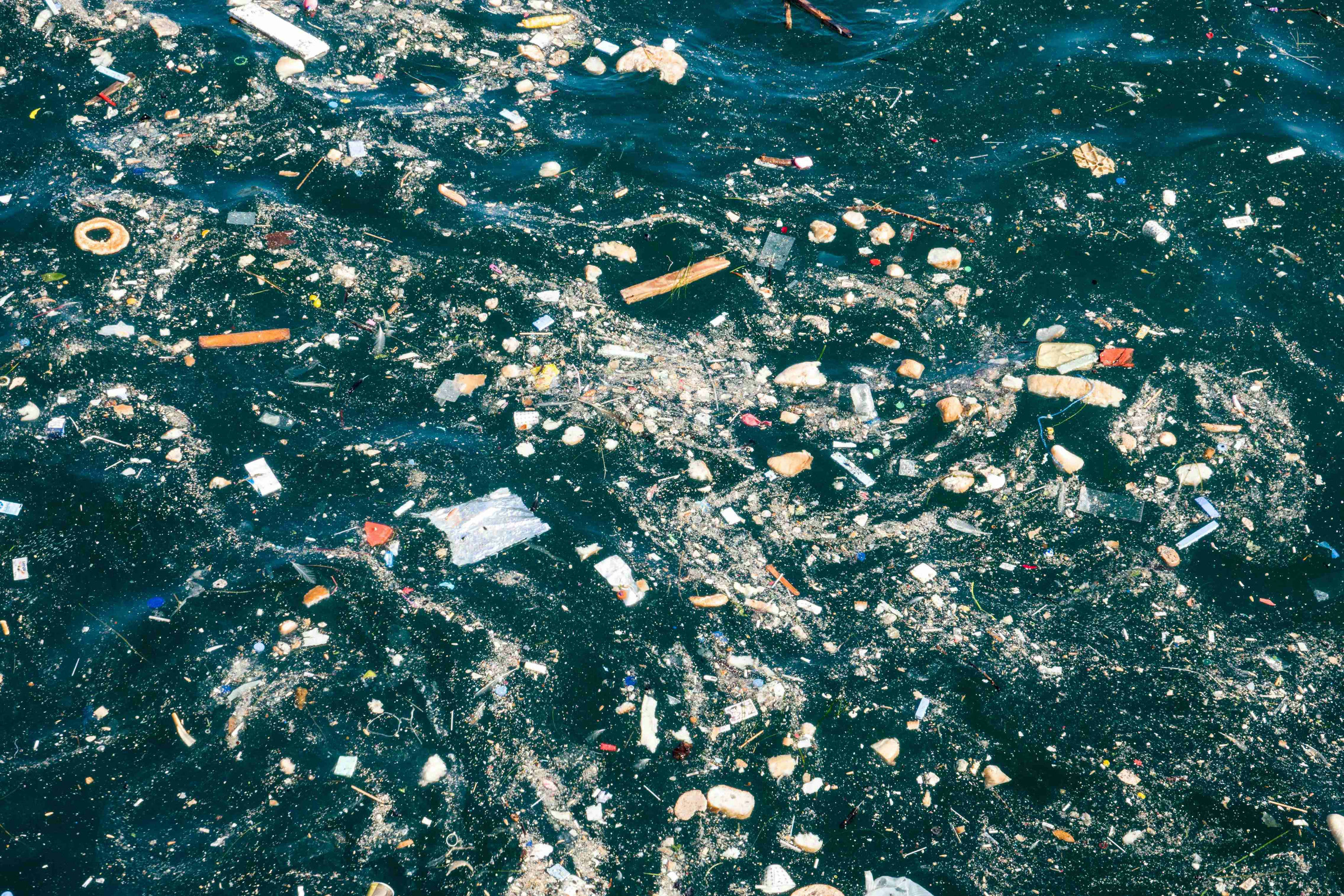Millions of tiny plastic nurdles prompt fears of "major troubles" in Spain after falling from vessel
Hundreds of people in the northwest Spanish community of Galicia are working to clean up millions of tiny plastic pellets that have been washing up on their Atlantic Ocean shores. The pellets, known as nurdles, fell out of a shipment on a charter vessel at the beginning of December.
A spokesperson for Danish shipping and logistics company Maersk confirmed the "regrettable" incident to CBS News, saying the plastic pieces were in a container on the charter vessel Toconao. The ship itself is not owned or manned by Maersk, but the company was handling their containers.
The spokesperson said that on Dec. 8, the vessel "lost six Maersk containers overboard in deep sea off the Galician coast in Spain." They added that the ship was journeying from Algeciras to Rotterdam, and that the lost containers were "immediately reported" to Spain and Portugal.
Bags of the nurdles, which the Maersk spokesperson said are used for producing food-grade packaging and water bottles, were in one of the containers that went overboard. It's those bags that are now washing up on Galicia's shores.
"No crew members were injured in the incident, and the vessel was able to continue its journey to Rotterdam," the spokesperson said. "The cause of the container loss is still being investigated."
An environmental charity group called The Great Nurdle Hunt says nurdles are lentil-sized plastic pellets that, because of their size, easily end up polluting waterways. According to the group, they're the "second largest source of primary microplastic pollution globally," with nearly 983 million pounds of the plastics ending up in the environment every year.
"Once in the environment nurdles are extremely difficult to clean up," the group says on its website. "They can easily be blown or washed into drains and carried out to sea, or spilt directly into the sea from transport ships. Once in the sea, currents can carry the nurdles around the world. There is no practical way of removing all nurdles from the environment."
The mayor of the coastal community of Ribeira, Luis Perez, told Reuters that the spill "is causing major troubles to our ocean."
"A major problem formed by millions of plastic particles which are now depositing in our sea and our beaches, affecting marine and terrestrial flora and fauna," Perez said. "...The town hall can't face this environmental crisis alone, and we can't let the citizens alone."
Local have been working to clean up the plastic pieces. One day last week, Perez said 500 people spent the day at local Vilar beach to help round up the plastic.
On Dec. 13, when large bags of the material were first spotted, more than 40 bags, each roughly 55 pounds, were removed, according to state-owned media RTVE. As of Jan. 10, at least 78 bags have been picked up.
"We live from the sea — 80% of the people of the Ribeira Council live from the sea, directly or indirectly," Councilor for the Environment Antía Alberte told RTVE.
The Maersk spokesperson told CBS News that two cleanup companies have been contracted to assist with the plastic removal.
"Other plastics which have also been washed up and are unrelated to this incident are also being collected," the spokesperson said. "Crew, vessel and cargo as well as environmental safety are of highest importance, and we will follow up with a thorough investigation and take necessary steps to minimize the risk of similar incidents occurring in the future."





